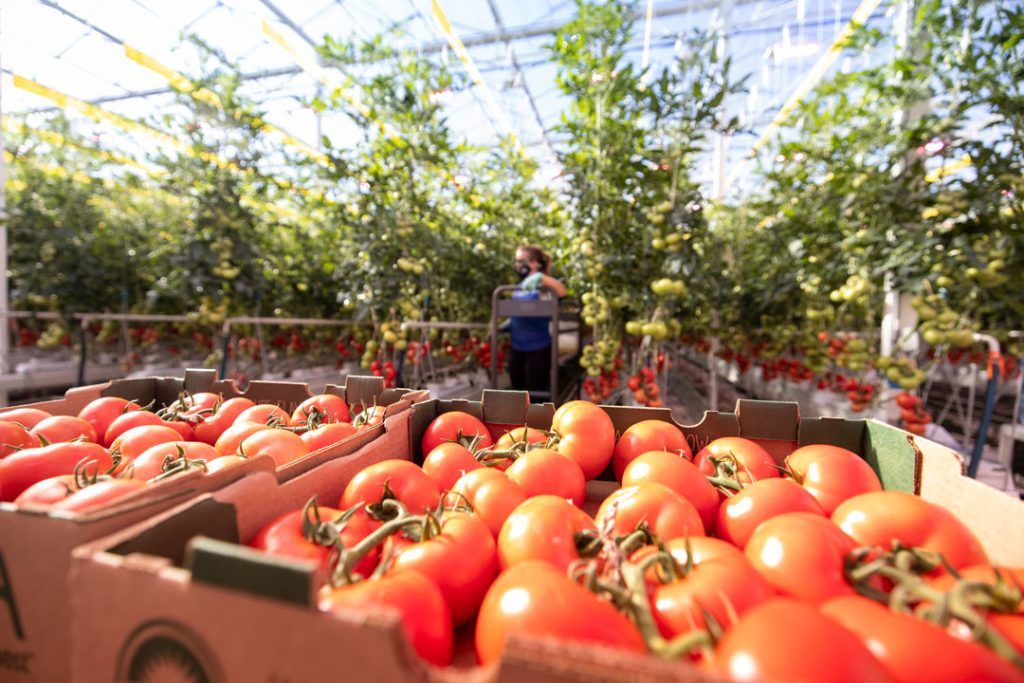Including vine crops, the U.S. Department of Agriculture (USDA) predicts that the total annual value of domestic fruit, vegetable and nut production will exceed $66 billion in 2029, an increase of $14 billion over the 2020 annual value, or a cumulative rise of 26.9 percent.
AppHarvest assesses that today’s challenges in agriculture are far-reaching and accelerating.
To size up the outlook: the World Bank forecasts that global food production will have to increase by approximately 50 percent or more between now and 2050 to feed the world’s growing population.
By 2020, vegetable production will account for about 41% of total farm value (or about $21.5 billion), and fresh vegetables will comprise about 32% of the market (or about $6.9 billion).
Two particular tatos: tomatoes are the second most popular fresh market commodity in the United States, and per capita consumption of fresh tomatoes there has grown to 21 pounds per year, 75% higher than nearly four decades ago.
The USDA attributes this growth primarily to changes in consumer preferences and a shift toward a healthier diet and lifestyle in general.
Vegetable
AppHarvest was founded on January 19, 2018. Together with its subsidiaries, it is an Appalachian applied agricultural technology company that develops and operates some of the largest high-tech indoor farms in the world, designed to grow non-GMO crops with no or minimal chemical pesticide residues that use primarily rainwater and produce significantly higher yields than those obtained by traditional agriculture on the same acreage.
The company combines conventional farming techniques with the latest technology, including artificial intelligence and robotics, to improve access to nutritious food, farm more sustainably, create a national food supply and increase investment in Appalachia.
![]()

